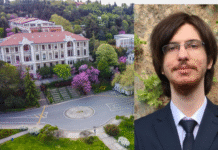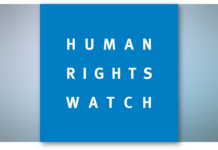Turkish authorities investigated a total of 15,044 people for “inciting hatred and hostility among the public” in 2019, compared to 731 only a decade ago, Bold Medya reported.
As a result of these investigations 256 people were convicted, of whom 77 actually served time in prison. The sentences of the remainder were suspended or converted to fines
Turkish Penal Code Article 216 stipulates that provoking hatred or hostility between segments of the society or degrading a segment of society is a criminal activity. Speaking to Deutsche Welle (DW) Turkish service, lawyer Veysel Ok argued that the law has been taken out of context and used in an “illogical manner” in recent years.
“This law is not meant to be used against private citizens, but people who have authority and power,” he said.
According to Ok, for a person to be tried for inciting enmity, their actions or statements need to have tangible results. “There needs to be a case where the society is pitted against itself for the law to be enforced,” he said. “A controversial work of art or the statement of a random person does not have this effect.”
Referring to the current Boğaziçi University protests, Ok said students who had been demonstrating were being detained for inciting hatred and enmity, although they were exercising a democratic right and were not posing any real danger to society.
According to Ok, people in positions of authority have the power to incite hatred and hostility. He said politicians had public visibility thanks mainly to the media, and their statements had incredible social impact. “In this context, if authorities really want to enforce Article 216, they should enforce it primarily against politicians,” he said.
Top government officials have come under national and international scrutiny for using hate speech and homophobic remarks against the protestors. President Recep Tayyip Erdoğan said the protestors were terrorists, while the Interior Minister Süleyman Soylu described LGTB protestors as deviants and perverts.
One student detained and later released spoke to DW, saying they were targeted by the government for protesting, a democratic right. “It is our constitutional right, but the government is misleading the society, turning us into targets,” the student said.
Ok said Turkish courts regarded the statements of politicians in the context of freedom of expression while critics were prosecuted.
Another university student said that students were detained for protesting, people who were actually inciting hatred and enmity by threatening them were free. The student said people like Cevdet Kılıç, dean of the theology faculty at Trakya University who tweeted that he would “finish off the protestors one night,” should be prosecuted.
Arzum Yalçın, a journalism student at Istanbul University, said there was no legal consequences for authorities who directly targeted people critical of the government.
Protests erupted at Boğaziçi University after Erdoğan appointed loyalist Melih Bulu as head of the university at the start of the year. Critics slammed the appointment of Bulu, saying he was unqualified for the job and that a state-appointed rector harmed the independence of the university.
More than 500 students and their supporters were detained in İstanbul and Ankara in increasingly violent and politically charged altercations with the police last week. Ten students have been arrested, while 24 were put under house arrest. Three of the students were arrested for inciting hatred and enmity among the public.















